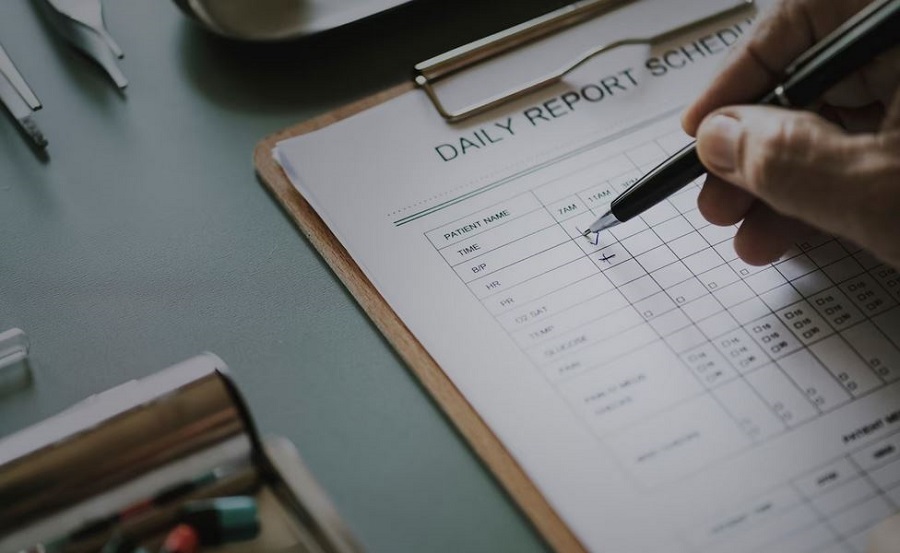Setting monthly bills is a wise move to manage your finances better. When you have multiple debts, or even one large debt such as a house or car bill, it can become a heavy burden and have a serious impact on your financial well-being. That’s why, in this article, we’ll provide you with tips on managing your monthly bills so you can manage your finances better and build your wealth more effectively.
1. Make a List of All Debts and Monthly Bills

The first step in organizing monthly bills is to make a list of all your debts and monthly bills. This will help you understand how much money you have to pay off each month, and help you create a better financial plan. In this list, you need to mention the type of debt, loan amount, interest charged, number of bills per month, due date, and payment status.
2. Prioritize Paying Bills with the Highest Interest
After making a list of debts and monthly bills, you must prioritize paying bills with the highest interest first. This is because the bill with the highest interest will increase the amount you owe more quickly. If you can’t pay all your bills at the same time, then focus on the ones with the highest interest rates first. Make sure that you pay more than the minimum payment so you can pay off your debt faster.
3. Consider Debt Consolidation
If you have a lot of debt with high interest, then debt consolidation can be a good choice to reduce your monthly credit bills. By combining all your debts into one loan, you can reduce the amount of interest you have to pay. This will help you pay your bills faster and save money in the long run.
4. Use Credit Cards Wisely
Credit cards can be a significant source of debt for many people. However, if used wisely, a credit card can be a useful tool in managing your monthly bills. Make sure you pay your credit card bills on time and in full every month. This will help you avoid high fines and interest. In addition, you can use the cashback or reward features to make the most of your credit card.
5. Make a Budget Plan and Save

Lastly, make a budget plan and save money. A budget plan can help you estimate your monthly expenses, so you can better save money. Try to cut out non-essential expenses and allocate the money saved towards paying monthly bills. In this way, you can repay the debt more calmly.
You can read the tips below or read full article to make a budget plans and save more money..
- Track Your Spending
The first step in creating a budget plan is to track your spending. This will help you identify areas where you are overspending and find ways to cut back. You can use a spreadsheet or a budgeting app to keep track of your expenses. - Set Financial Goals
Setting financial goals can motivate you to stick to your budget plan. Your goals should be specific, measurable, attainable, relevant, and time-bound. For example, you might set a goal to save $5,000 for a down payment on a house within the next two years. - Make a Budget
Once you’ve tracked your spending and set your financial goals, it’s time to create a budget plan. Start by listing your sources of income and your monthly expenses. Be sure to include all of your expenses, such as rent, utilities, groceries, and entertainment.
Next, subtract your monthly expenses from your income to determine your disposable income. This is the amount of money you have left over each month after paying your bills. You can use this money to save for your financial goals or to pay off debt. - Cut Back on Expenses
If you find that you’re spending more money than you’re earning, it’s time to cut back on expenses - Use Cash Envelopes
One way to stay within your budget is to use cash envelopes. This involves setting aside cash for different categories, such as groceries, entertainment, and clothing. When the cash is gone, you can’t spend any more money in that category until the next month. - Save for Emergencies
It’s important to set aside money for emergencies, such as unexpected car repairs or medical bills. Aim to save at least three to six months’ worth of living expenses in an emergency fund. - Automate Your Savings
If you find it challenging to save money, consider automating your savings. You can set up automatic transfers from your checking account to a savings account each month. This will help you save money without even thinking about it.
6. Make Extra Payments When Possible
If you have some extra cash, consider using it to make extra payments towards your bills. This can help you pay off your bills faster and save money on interest charges in the long run.
7. Avoid Taking New Credit Items Again
While you are trying to pay off your existing credit bill, it’s important to avoid taking on new credit for some items. This can be a difficult habit to break, but it’s essential to stick to your budget and resist the temptation to take on additional bills.
Conclusion
Managing your monthly installment payments can be a challenging task, especially if you have multiple debts. However, by following the tips discussed in this article, you can create a plan to manage your debts and get on the path to financial stability.
Remember to stay disciplined, make a budget, prioritize high-interest debts, consider debt consolidation, make extra payments when possible, and avoid taking on new debt. With time, effort, and commitment, you can take control of your finances and achieve your financial goals.

